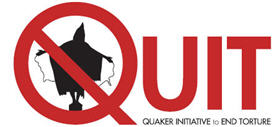latimes.com/news/opinion/editorials/la-ed-rendition6-2009nov06,0,3770282.story
latimes.com
Editorial
Italy got it right: CIA renditions are wrong
The conviction of 23 Americans in the abduction of Muslim cleric Abu Omar may be largely symbolic, but it sends an important message to the Obama administration.
4:41 PM PST, November 5, 2009
'Extrajudicial detentions" and "extraordinary renditions" were nicely scrubbed terms for the Bush administration's policy of capturing suspects in one country and spiriting them away to another, where they were harshly interrogated and even tortured. Now an Italian court has called this CIA practice by its real name -- illegal.
The conviction of 23 Americans and two Italians for kidnapping an Egyptian cleric off the streets of Milan in 2003 in one sense is largely symbolic: The defendants were tried in absentia, and the Italian government is not seeking their extradition; barring a successful appeal, the two governments may try to work out a clemency deal. Yet the decision matters. It repudiates President Obama's expressed desire to look away from the ugly past, and sends a strong message that the U.S. government cannot operate outside the law with impunity in the name of fighting terrorism.
The CIA abducted Hassan Osama Nasr on Feb. 17, 2003. The Muslim cleric, suspected of recruiting insurgents for Iraq and Afghanistan, was flown to Egypt, where he allegedly was tortured with electric shocks, beatings and threats of rape. He was released in 2007.
Obama has since ended CIA interrogations in secret prisons and shut overseas jails used by the CIA, but he has not stopped the practice of extraordinary rendition. The difference between his and his predecessor's policy is that the administration will now demand credible assurances that prisoners won't be tortured, and that prisoners will be "rendered to justice" rather than held indefinitely without trial.
We don't like renditions and think even the most dangerous criminals are entitled to due process, including extradition hearings. A war against violent extremists cannot be won by immoral or illegal means; the U.S. can't outsource dirty work and claim to have clean hands.
Some have questioned how this case differs from the capture of Nazi Germany's Adolf Eichmann by Israeli security forces in Buenos Aires in May 1960, an extrajudicial action that was widely praised at the time. One significant difference is that Argentina's military government was harboring a war criminal, whereas Italy had opened its own criminal investigation of Nasr when the CIA swooped in to kidnap him. Another is that Eichmann was put on trial, publicly. Nasr, to say the least, was not.
Thursday, November 5, 2009
Subscribe to:
Post Comments (Atom)

No comments:
Post a Comment
Note: Only a member of this blog may post a comment.